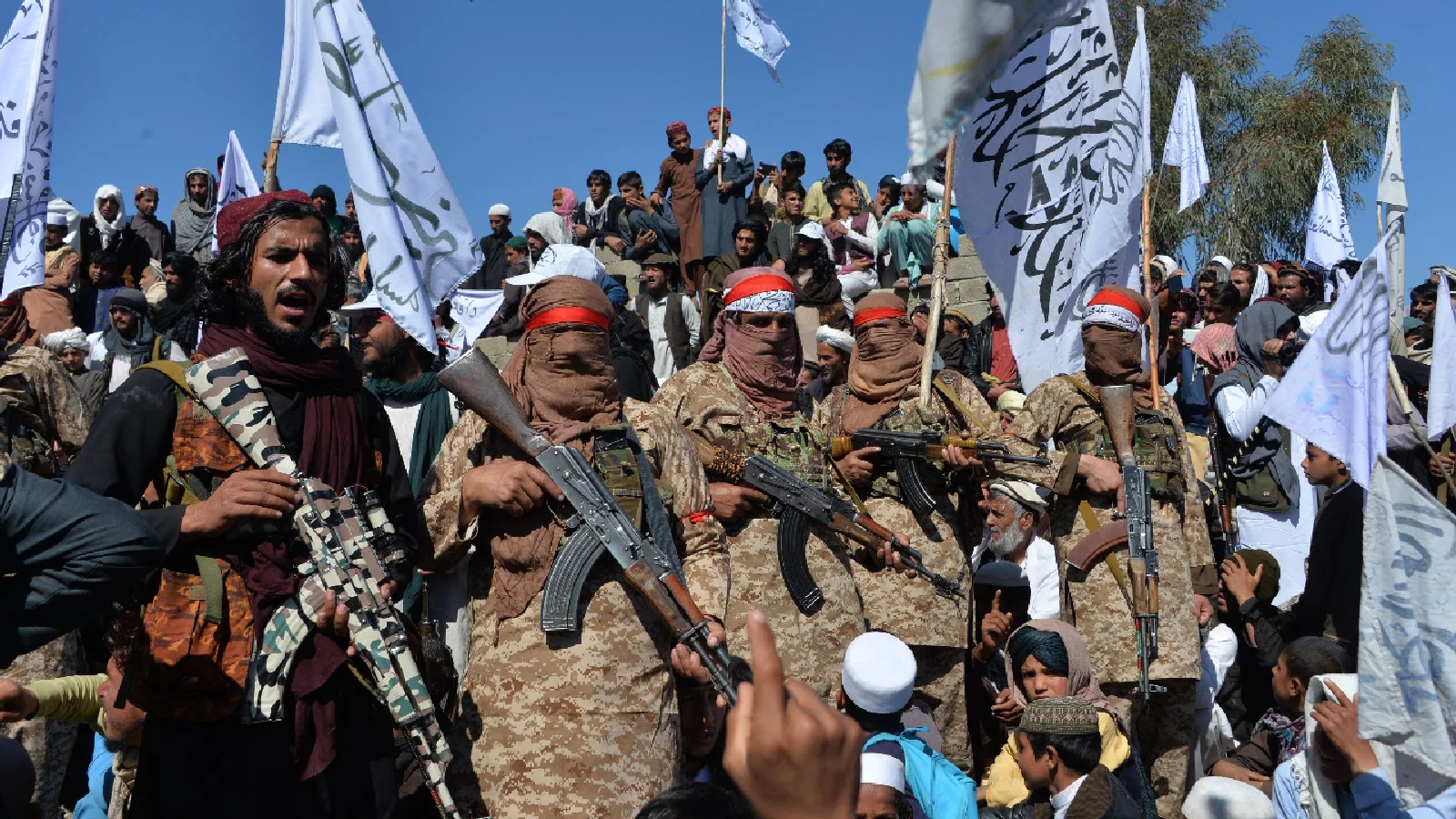Copyright news18

Pakistan and Afghanistan’s turbulent relationship has come full circle. Fierce military clashes along the Durand Line between October 9 and 13 forced Qatari and Turkish mediators to step in, brokering a brief ceasefire. When representatives from both countries reconvened in Istanbul on October 28 to build on that fragile truce, there was little optimism that the talks would succeed. And unsurprisingly, they did not with Pakistan confirming the failure of the dialogue, thereby demonstrating the extent of political chasm between Islamabad and Kabul. With the breakdown of dialogue, both sides appear entrenched in their positions. Expectedly, Pakistan’s federal information minister Attaullah Tarar blamed the collapse of talks squarely on the Afghan Taliban regime, declaring that Islamabad’s “fervent efforts to bring about any workable solution” had failed due to “the Afghan Taliban’s unabated support to anti-Pakistan terrorists”. This statement, part accusation and part deflection, captures the essence of Pakistan’s current predicament: it cannot accept that the Afghan Taliban, once nurtured as a proxy, is no longer willing to play the role Islamabad had scripted for it. For decades, Pakistan’s military establishment viewed Afghanistan not as a neighbour but as a strategic buffer where it can exert influence to gain the so-called strategic to deny regional adversaries like India and Iran a foothold. When the Taliban seized power in August 2021, Pakistan’s generals celebrated, believing it restored Pakistan’s long-sought “strategic depth” in the country. It was seen as the culmination of their long and costly project that was undone by the US invasion of Afghanistan in 2001. That illusion lasted mere months. The Afghan Taliban, though ideologically aligned and ethnically overlapping with Pakistan’s own Pashtun population, have proven unwilling to serve as Islamabad’s junior partner. They see themselves not as an appendage of Pakistan’s security state but as rulers of a sovereign nation, determined to chart their own course in regional politics. The reality is that while Pakistan expected loyalty, the Afghan Taliban offered independence. This divergence is at the heart of the current crisis. What Islamabad perceives as betrayal is, from Kabul’s perspective, the assertion of national dignity. The Taliban’s engagement with Iran, outreach to China and Russia, and upgradation of relations with India all signal a leadership seeking legitimacy beyond Pakistan’s orbit. Such posturing made it implicit that Kabul was charting its own trajectory and not seeking to filter its foreign policy decisions through Rawalpindi’s calculus. For public consumption, Pakistan insists that its primary grievance lies in Afghan Taliban’s refusal to rein in the Tehreek-e-Taliban Pakistan (TTP), the Pashtun Islamist Pakistani insurgent group focused on attacking the Pakistani state. Islamabad has recurrently accused Kabul of hosting TTP leadership and fighters who have “used” Afghan soil to launch attacks across the border. These accusations have followed after Baloch armed nationalist groups and TTP increased attacks against the Pakistani state forces. While Pakistan Army has launched multiple anti-insurgency campaigns, including the ongoing Operation Azm-i-Istehkam, it has failed to weaken these groups who continue to target military installations at will. For instance, in the last three months alone, nearly a hundred Pakistani soldiers, including several officers, have been killed in operations in Balochistan and Khyber Pakhtunkhwa. These attacks have dealt a severe blow to Pakistan’s already battered security forces and have amplified public anger. Yet, for all its rhetoric, Islamabad’s fixation on the TTP masks a deeper discomfort of the erosion of its influence over the Afghan Taliban. As such, by making the TTP the centrepiece of its diplomatic squabble, Pakistan is attempting to reframe the narrative from one of lost control to one of external victimhood. It is a familiar tactic. For decades, whenever Pakistan’s internal crises like insurgency, economic decay, or political instability have worsened, its military-dominated establishment has turned to the time-tested playbook of blaming outsiders. This deflection is not new. The Pakistani military’s political economy depends on sustaining the myth of external enemies which legitimizes its expansive role in governance, its bloated budget, and its grip on national security and foreign policy. By characterising Afghanistan as the source of instability, Pakistan’s generals can obscure their own failures, particularly their inability to contain the Islamist militancy and Baloch nationalist insurgency. There is another reason for blaming Kabul. The Pakistani military establishment and its puppet government is trying to use this narrative to unite an increasingly fragmented domestic polity. The core of this familiar narrative is to project betrayal by Afghan people, millions of whom have found refuge in the country since the 1980s due to Afghanistan’s unending instability. These are attempts to convince the common Pakistanis who are facing the combined misery of inflation, unemployment, poverty, and political repression that their woes stem from Afghan duplicity rather than systemic dysfunction. But this narrative is wearing thin. The same establishment that once midwifed the Taliban’s return to power now finds itself outmanoeuvred by its former protégés. Pakistan’s expectation that the Taliban would act as a pliant extension of its foreign policy apparatus was always naïve. The Taliban’s ideology may overlap with Pakistan’s Islamist discourse, but its nationalism is distinctly Afghan. The group’s leadership, composed largely of veterans of the anti-Soviet and anti-American wars, has little patience for external tutelage. Since its return in 2021, Afghan Taliban has been consolidating a largely independent foreign policy. They have deepened ties with Tehran over trade and water-sharing, courted Beijing for infrastructure investments, and even New Delhi, once seen as its foe, with whom it recently upgraded its relations to full diplomatic levels. Kabul maintained a cautious but pragmatic dialogue with Moscow leading to the first international recognition of the Taliban regime in July this year. Likewise, most of the Central Asian republics have engaged with Kabul in one way or the other. Each of these moves chips away at what Pakistan thought would be a monopoly over Afghan affairs. For Islamabad, this autonomy is more threatening than the TTP’s violence. It undermines the very logic of its regional security doctrine hinged on controlling Afghanistan as a buffer against real and imagined adversaries. The current state of Islamabad-Kabul relations is an inevitable consequence of Pakistan’s strategic miscalculations. Having invested in religious militancy as an instrument of foreign policy for decades, Islamabad sowed the seeds of its own instability. The blowback is now evident: insurgencies in Balochistan and Khyber Pakhtunkhwa, radicalisation within its own borders, and an emboldened Taliban regime next door unwilling to take dictation. The path forward lies not in coercion or propaganda but in introspection. Pakistan must confront the reality that its security-centric approach to foreign policy defined by its obsession with “strategic depth” has reached a dead end. Continuing to blame Kabul for its internal insecurities only perpetuates the cycle of mistrust and violence that has haunted the region for decades. The writer is an author and columnist. His X handle is @ArunAnandLive. Views expressed in the above piece are personal and solely those of the author. They do not necessarily reflect News18’s views.



